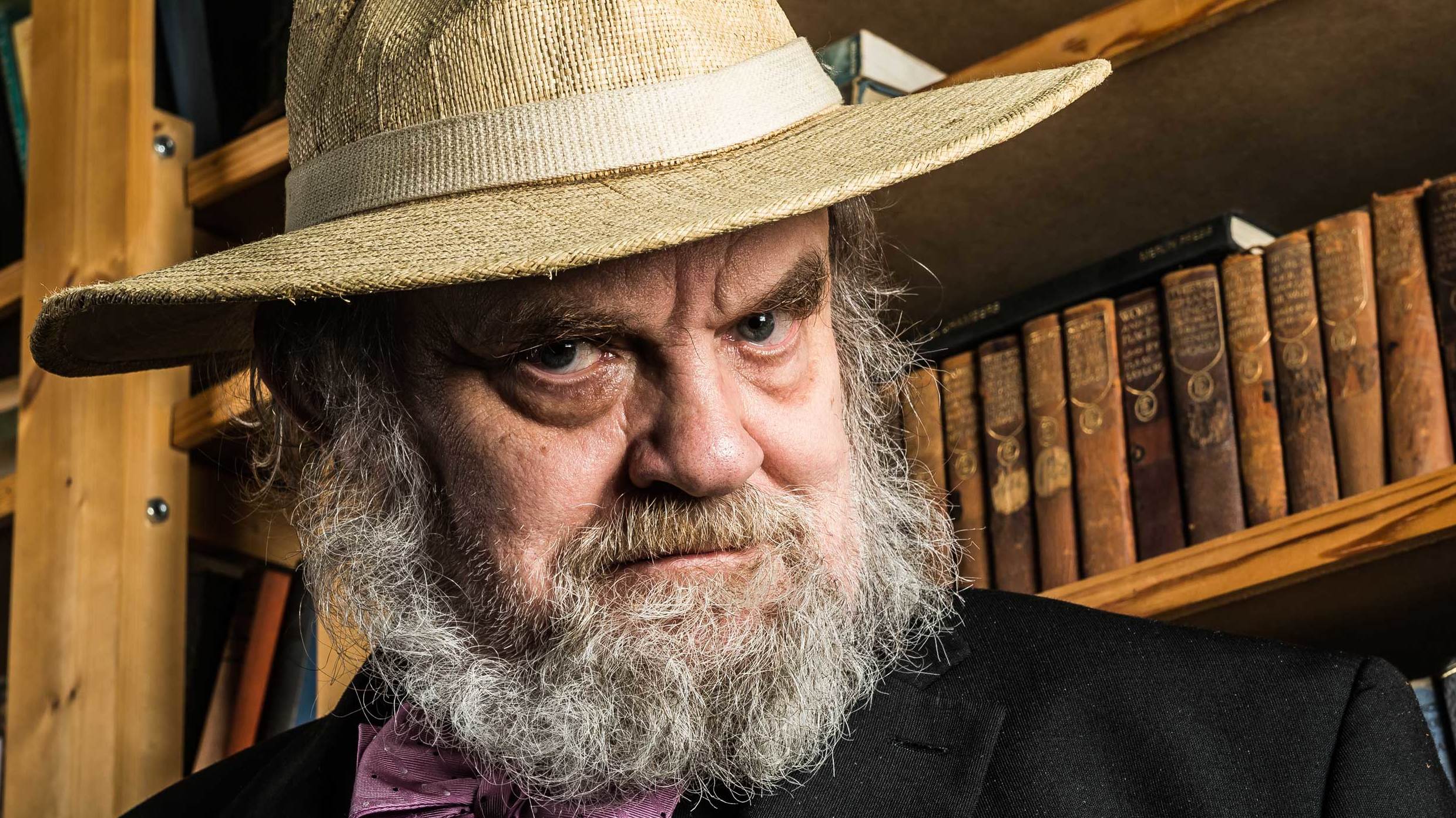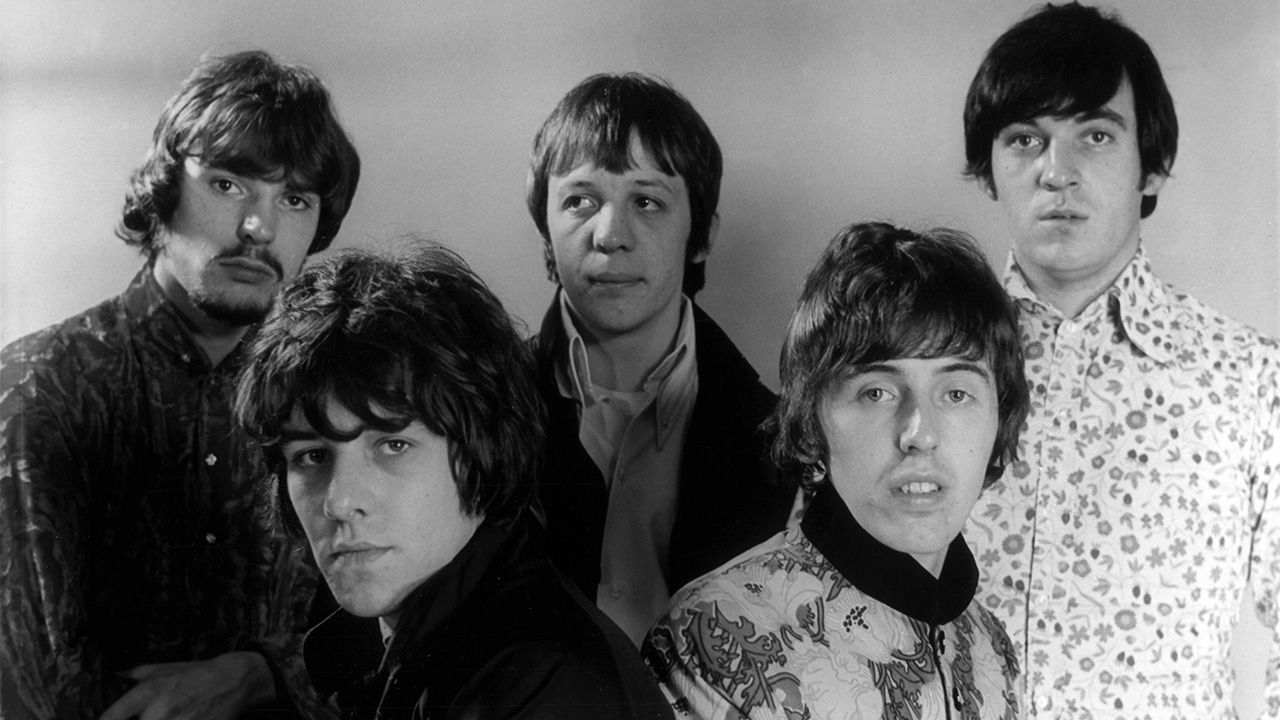"I am the founding father of progressive symphonic rock". Robert John Godfrey states his case
Prog sat down with the godfather of symphonic rock is back as the band prepared to play the Prog Stage at the then newly formed High Voltage Festival

Select the newsletters you’d like to receive. Then, add your email to sign up.
You are now subscribed
Your newsletter sign-up was successful
Want to add more newsletters?

Every Friday
Louder
Louder’s weekly newsletter is jam-packed with the team’s personal highlights from the last seven days, including features, breaking news, reviews and tons of juicy exclusives from the world of alternative music.

Every Friday
Classic Rock
The Classic Rock newsletter is an essential read for the discerning rock fan. Every week we bring you the news, reviews and the very best features and interviews from our extensive archive. Written by rock fans for rock fans.

Every Friday
Metal Hammer
For the last four decades Metal Hammer has been the world’s greatest metal magazine. Created by metalheads for metalheads, ‘Hammer takes you behind the scenes, closer to the action, and nearer to the bands that you love the most.

Every Friday
Prog
The Prog newsletter brings you the very best of Prog Magazine and our website, every Friday. We'll deliver you the very latest news from the Prog universe, informative features and archive material from Prog’s impressive vault.
Often seen as a somewhat eccentric and peripheral figure, Robert John Godfrey’s career goes back to the late 60s, when he collaborated with Barclay James Harvest. Since then he’s poured his energies into The Enid, a unique and very English musical institution. Over the years he’s battled mental heath issues, and has had to deal with the consequences of a long-running and bitter feud with BJH, plus occasional controversial comments on the prog rock scene. But as The Enid are confirmed to play on the Prog Stage at the High Voltage Festival, the man is determined to carry on doing things his way – whatever the situation.
You’ve begun the year by reissuing your 1974 solo album Fall Of Hyperion. What’s the thinking behind this?
Well, it became available when we negotiated with EMI to get the rights back for The Enid albums In The Region Of The Summer Stars and Aerie Faerie Nonsense. So, it made it sense to re-release it. But listening back to it now, I do wonder what I thought I was doing. I seemed to be determined to prove I was the world’s greatest pianist, and there’s inappropriate virtuosity all over the album. But I suppose a lot of artists are disparaging about their early works.
Last year was big for The Enid, with reissues, a new album and a tour. Was this a sense of being reborn as a musician?
In a way it was. The problem was that I took such a big break from the late 1990s, and will also admit to be doing some very stupid things. So it was a case of starting again from scratch. The challenge now is to get The Enid message out to all parts of the world; but from the reaction to the live shows, the wow factor is back.
You’re doing the High Voltage Festival in July. What can we expect from the performance?
Well, I’ve been asked if we’ll do The Dambusters Theme and Land Of Hope And Glory, which we will put in the set. Although it is going to be a bit odd doing these at two in the afternoon. But this is such a big break for us, and the chance to get across to a wider audience.
Sign up below to get the latest from Prog, plus exclusive special offers, direct to your inbox!
How do you adapt The Enid music for High Voltage?
We’ll all sit down and choose the pieces that we collectively feel work best. But ultimately I am the captain of this ship, and it will come down to my decision. So, it’s a case of asking for opinions and then telling them what we will do.
The Enid appear to be getting very ambitious, incorporating a string section and a choir now. Any plans for bigger things?
This year, everything’s building to our show at the Birmingham Symphony Hall on October 15. That’s a very big project. We’ll have the City of Birmingham Symphony Orchestra with us, and a 200-piece choir. I think we’re becoming more theatrical, and this will be increasingly obvious in the coming years. We want to exploit our uniqueness. Nobody can, or probably wants to, do what we do.
The Enid have a special bond with their fans. How did that develop in the first place?
I can recall exactly when that occurred. When Pye Records called us in for a meeting in 1980, played us some Uriah Heep and said they wanted The Enid to get a singer and write songs like them! That was the end of our relationship with the big companies. From then on, out of necessity we formed a very close tryst with our fans, and I built a business model that brought fans closer to the band than ever, and allowed us to carry on with their direct support. It’s something that so many others, even Radiohead, have now adopted.
Do you believe that you are misunderstood?
I believe I am – but it’s my own fault. If people want to know who the real Robert John Godfrey is, then the following might help. I belong to no political party, and take the view once espoused by Churchill that democracy is the worst form of government, except for every other one that’s been tried. I was baptised and did once think about becoming a priest, but I’m committed to no major religion; although I am widely read on them all. I don’t have a personal bank account or a pension. I expect to die a pauper, although hopefully neither alone nor unloved. I freely admit to doing some disgraceful things in the past, to allow jealousy and rage to control my actions, and what I did to certain band members was appalling. I hope that’s all behind me.
You’ve been very dismissive of prog rock in the past. How do you feel about it now?
What I was angry about were those shallow, mediocre bands who were happy to peddle nostalgia. It wasn’t progressive and offered no imagination. As one of the originators of this type of music I had a right to be furious. I remember listening to the first four Yes albums and being amazed just how brilliant and inventive they were. Such gifted musicians. So to see the way this was twisted by bands who were just rehashing Yes’s talents… that was disgraceful. But now it’s all changing. I hear lots of exciting young bands, who appreciate the brilliance of a wide range of artists from Frank Zappa to XTC to Sonic Youth. Now there’s hope for prog rock.
What do you feel is The Enid’s legacy?
I am the founding father of progressive symphonic rock. That might sound arrogant, but it is true. What The Enid have done is to successfully develop a symphonic approach to rock music. It’s not song-based. Other bands have used orchestrations to bump up their songs, but we’re unique. John Peel once dubbed us A-Level rock – he had a point. When we started, we attracted young boys and girls who were going to university, who didn’t relate to the supergroups, yet also didn’t want to put safety pins through their noses and go out to punk gigs dressed in bin liners. Those people have stayed with us. I like to think that there’s also a real affection for The Enid. I am very humbled by that.
This article originally appeared in issue 15 of Prog Magazine.
Malcolm Dome had an illustrious and celebrated career which stretched back to working for Record Mirror magazine in the late 70s and Metal Fury in the early 80s before joining Kerrang! at its launch in 1981. His first book, Encyclopedia Metallica, published in 1981, may have been the inspiration for the name of a certain band formed that same year. Dome is also credited with inventing the term "thrash metal" while writing about the Anthrax song Metal Thrashing Mad in 1984. With the launch of Classic Rock magazine in 1998 he became involved with that title, sister magazine Metal Hammer, and was a contributor to Prog magazine since its inception in 2009. He died in 2021.

